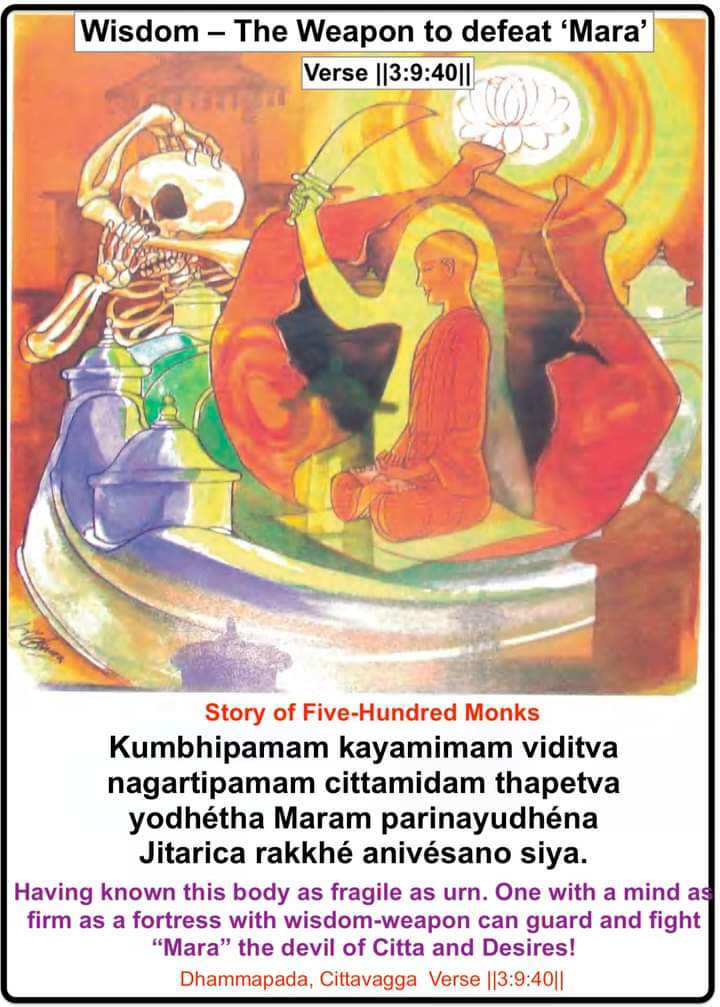Defeat – “Mara” (The Demon of Citta and Fear of Death) by the “Weapons of Wisdom, Compassion and Loving Kindness.”The Story of Five Hundred Monks (Verse 3.9:40)
Defeat – “Mara” (The Demon of Citta and Fear of Death) by the “Weapons of Wisdom, Compassion and Loving Kindness.”
Place: Jétavana
Once, Five hundred monks from Savatthi, after obtaining Dhamma from the Buddha, travelled away from Savatthi and came to a large forest grove, a suitable place for vipassana meditation. The guardian spirits of the trees dwelling in that forest thought that if those monks were staying in the forest, it would not be proper for them to live with their families. So, they descended from the trees, thinking that the monks would stop there only for one night. But the monks were still there at the end of a fortnight; then it occurred to them that the monks might be staying there till the end of the vassa. In that case, they and their families would have to be living on the ground for a long time. So, they decided to frighten away the monks, by making ghostly sounds and frightful apparitions. They showed up with bodies without heads, and with heads without bodies. The monks got very upset and left the place and returned to the Buddha, to whom they narrated everything. On hearing their account, the Buddha told them that this has happened because they went without any protection. This time they should go armed with weapons of “Loving Kindness and compassion” for Deva’s living on those trees. This is their most suitable protection.
So saying, the Buddha taught them the protective discourse of “Metta Sutta” at length (Loving-Kindness) starting as following and instructed to recite the entire sutta with profound metta and loving compassion as soon as they arrive at the outskirts of the forest grove;
karaniyamattha kusaléna
yam tam santam padam abhisamecca
sakko uju ca suju ca
suvaco c’assa mudu anatimani…. And so on!
Meaning: “He who is skilled in (acquiring) what is good and beneficial,
(mundane as well as supramundane), aspiring to attain perfect peace (Nibbana) should act (thus): He should be efficient, upright, perfectly upright, compliant, gentle and free from conceit.”
The monks returned to the forest grove and did, as they were told. The guardian spirits of the trees receiving loving-kindness from the monks reciprocated by welcoming them and not harming them. There were no more ghostly sounds and frightening sights. Thus, left them in peace, the monks meditated on their bodies and came to realize its fragile and impermanent nature. From the Jétavana monastery, the Buddha too, sent forth his divine radiance making them feel his presence and said, “Monks just as you have realized, the body is, indeed, impermanent and fragile like an earthen jar.” And thus you have won over the fear of death!
Commentary (Verse 40)
In reality the body is as vulnerable, fragile, frail and easily disintegrable as a clay vessel. The mind should be thought of as a city. One has to be perpetually mindful to protect the city. Forces of evil have to be fought with the weapon of wisdom. After the battle, once you have achieved victory, live without being attached to the sense of mortal self.




Comments
Post a Comment